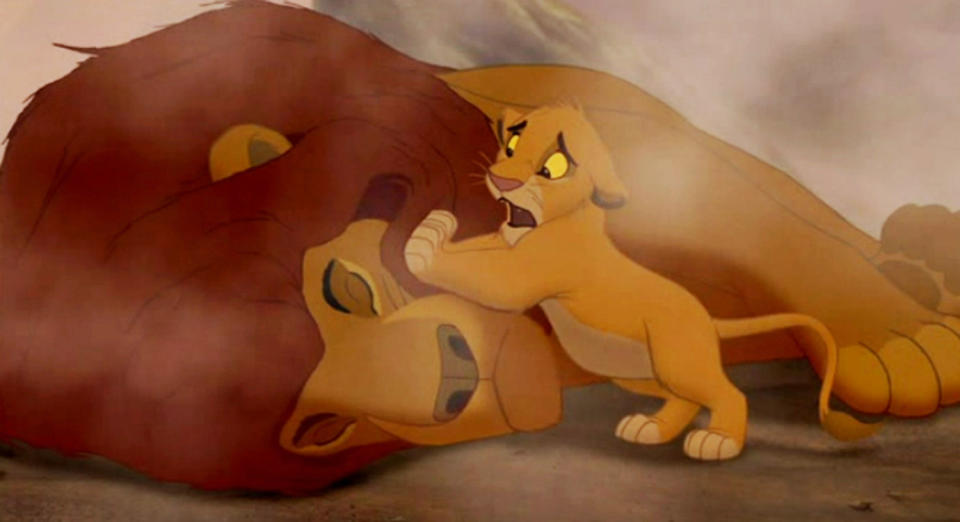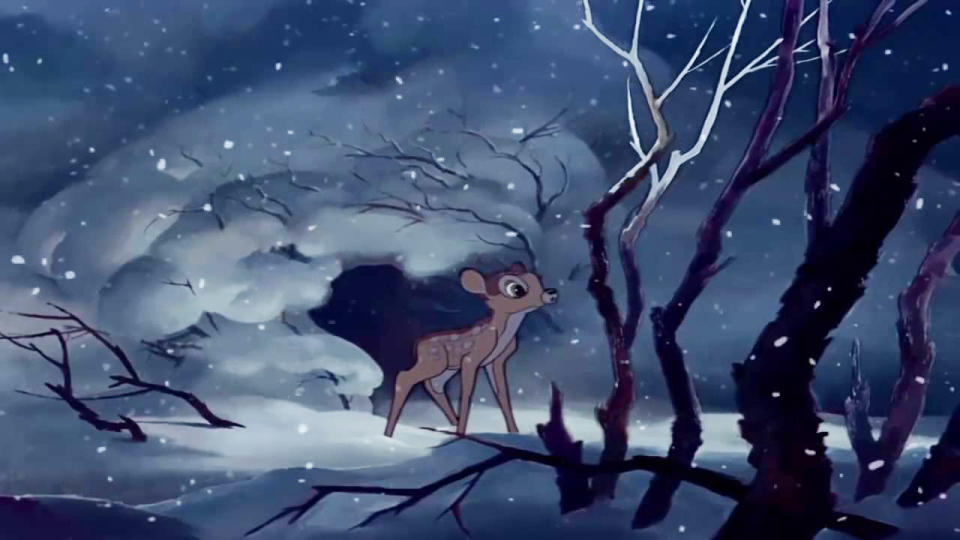This is how Disney films can help parents talk about death with their kids

Many Disney and Pixar movies have a character death that’s central to the plot: Gramma Tala in Moana, Mufasa in The Lion King, Elsa and Anna’s parents in Frozen, Bambi’s mother, and Hiro’s big brother in Big Hero 6, to name a few. While these moments are emotional and kind of depressing, new research has found they can actually be used to help teach kids about death.
A recent study published in Omega — Journal of Death and Dying analyzed end-of-life scenes and the depiction of death in Disney and Pixar movies and found that they can provide “critical opportunities” for discussions of death and dying with children and adults. For the study, researchers analyzed 57 movies and found 71 character deaths, which they then analyzed based on the character’s status, how the death was depicted, the death status, the characters’ emotional reaction to the death, and what caused the death.

Four major themes emerged, which the researchers say can be used as discussion opportunities. The first is how realistic the deaths were. Some characters returned or returned in a different form (think: Moana’s grandmother turning into a stingray), but the researchers argue that this can be a way to talk to a child about the difference between real life and fiction.
The second is how the characters responded to death, which can help children understand the expression of emotion. (The researchers specifically cite Big Hero 6 and Bing Bong’s death in Inside Out as good examples.)
The third theme is the intention to kill, and the fourth is whether there is a transformation and spiritual connection. While religion and spirituality isn’t usually a big part of these movies, the researchers say it can still give people an opportunity to talk to kids about their beliefs and how they tie into death.
It’s a little intimidating to talk to kids about death, but psychiatrist Gail Saltz, MD, author of The Power of Different: The Link Between Disorder and Genius, tells Yahoo Lifestyle that they’re probably already aware of the concept of death on some level thanks to these movies. “Disney movies most often start with a parent getting killed or already being dead,” she points out. “For better or worse, kids get a lot of their learning from watching shows and reading books.”
Seeing a death played out onscreen can help kids absorb it in their own way. “It’s something that a child can think about in a way that doesn’t seem threatening to them like it is in real life,” Saltz says. Children will often process what they see in movies, mull it over, rework it in their mind, and even incorporate it into their play as a way of translating it, she explains.

If you’re not sure whether your child is ready to talk about this tough subject, Saltz offers a good sniff test: If your child seems overly upset when, say, Anna and Elsa’s parents die in Frozen, they may be too young for this conversation and are likely not ready to see these movies. But, if they don’t seem overly upset by a death scene, it’s OK to ask them about what they think by saying something like, “What did you think when Hiro’s brother died?” “If they’re not interested in having that conversation, they’re going to give you something very limited to work with,” Saltz says.
However, she adds, they might come back to you later with questions — so make it clear that you’re always there to talk.
It’s important not to dismiss your child if they do ask about death, Linda E. Olszewski, an assistant professor of pediatrics and adolescent medicine at Mount Sinai Adolescent Health Center, tells Yahoo Lifestyle. “Don’t put up blockades or shut them down when they try to ask or communicate this curiosity,” she says. And, above all, be honest and genuine with your answers.
Also, keep in mind that children have difficulty understanding the permanence of death, notes Olszewski. But, as they become teenagers, they will start to understand it as an ending and part of the cycle of life.
Read more from Yahoo Lifestyle:
Follow us on Instagram, Facebook, and Twitter for nonstop inspiration delivered fresh to your feed, every day.